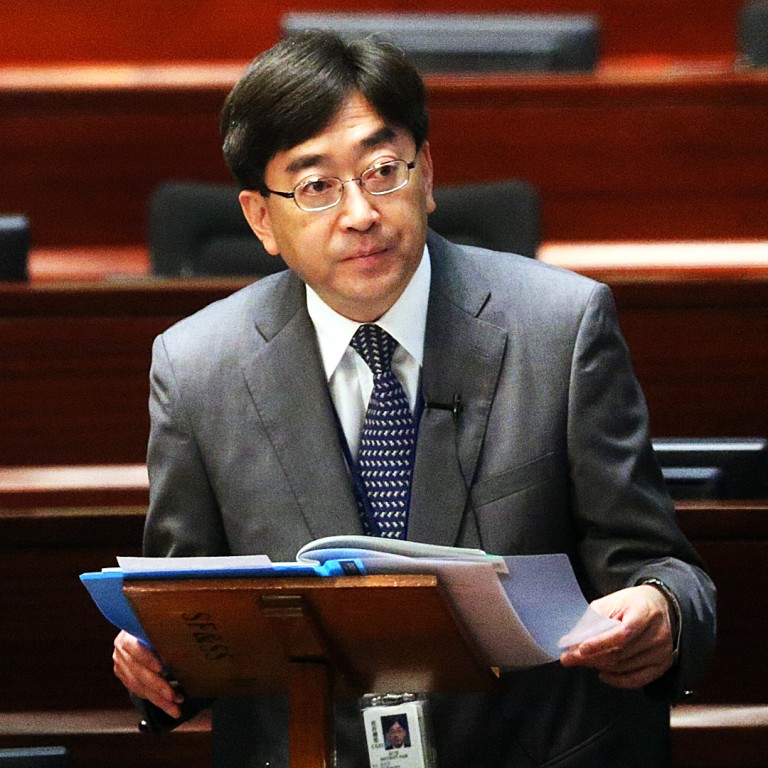
Korean Mers patient in China may face Hong Kong legal action ‘for giving false information’
A 44-year-old South Korean man infected with Mers who allegedly gave false information to medical officers during a check at Hong Kong’s airport could face prosecution if he returned to the city.
A 44-year-old South Korean man infected with the Mers virus who allegedly gave false information to medical officers during a check at Hong Kong’s airport could face prosecution if he returned to the city, health minister Dr Ko Wing-man said today.
“The man gave false information when passing our port. We are taking the case very seriously,” Ko said at a special Legislative Council meeting today to discuss the city’s response to Middle East respiratory syndrome.
Ko was replying to the Liberal Party’s Felix Chung Kwok-pan. Chung had asked if the authorities had plans to prosecute the man as a deterrent.
“We are now seeking advice from the Department of Justice. If the [department] holds the view that the conditions and evidence are sufficient, we will consider taking legal action,” Ko said.
The Korean man slipped through an airport medical check last week and spent hours in the city before boarding a bus for Guangdong. He was later confirmed to have contracted Mers and now remains in a Huizhou hospital.
Ko added that enforcement action could happen only if the man returned to Hong Kong later.
READ MORE: No need for mandatory Mers quarantine, WHO says, amid Hong Kong public health scare
At the meeting today, lawmakers asked if health officials would introduce further preventive measures on flight passengers, such as requiring them to wear facial masks or checking their body temperature before boarding.
Leung Che-cheung, of the Democratic Alliance for the Betterment and Progress of Hong Kong, was concerned that only putting those flight passengers who sit within two rows of an infected person under isolated medical surveillance might not be enough.
“Because passengers move around or sometimes change seats on board,” Leung said. He said some others on board could be infected.
Ko replied that the current requirements were made based on scientific evidence on the transmission mode of the Mers virus – which is through sneeze or cough droplets. He said the standards adopted by Hong Kong were in line with those used by other countries such as in Europe and Australia.
“The reaching distance of droplets is limited,” Ko said. “We assess the risks of different passengers based on the duration and distance they are exposed to the droplets of an infected person.”
Ko said health officials had told all airlines which operate flights between Hong Kong and Seoul to stay vigilant onboard.
“Airline staff have been asked to keep an eye on the health conditions of passengers and medical workers at the airport and would intercept incoming passengers showing symptoms for a health assessment,” Ko said.
“The measures we have already taken are fairly progressive,” he said. “Many of these measures are more than the standards recommended by the WHO.”
He also said there would be difficulty in requiring passengers in other countries to wear masks or undergo body temperature tests before boarding a flight.
Ko did not say if Hong Kong had plans to issue a travel warning for South Korea amid the outbreak. He said the city tended to follow the World Health Organisation in this regard.
The WHO earlier ruled out advocating a mandatory quarantine for those who had contact with infected Mers patients, citing human rights issues.
